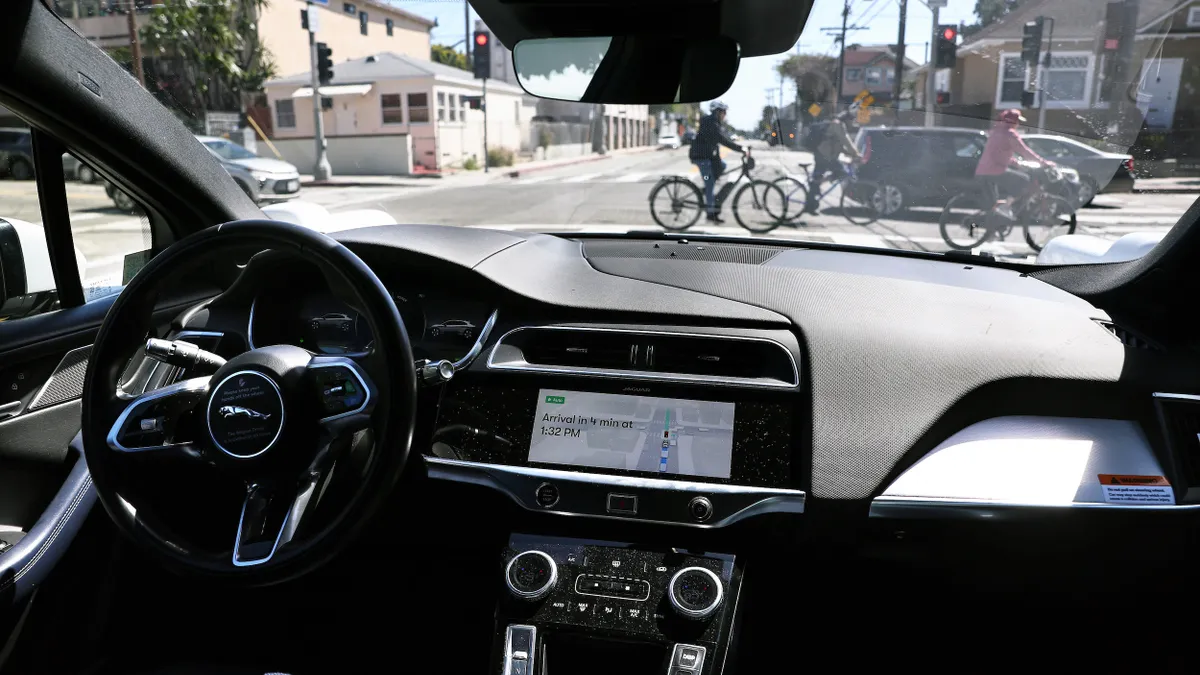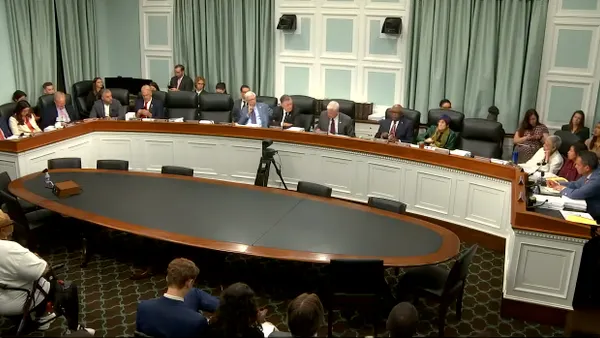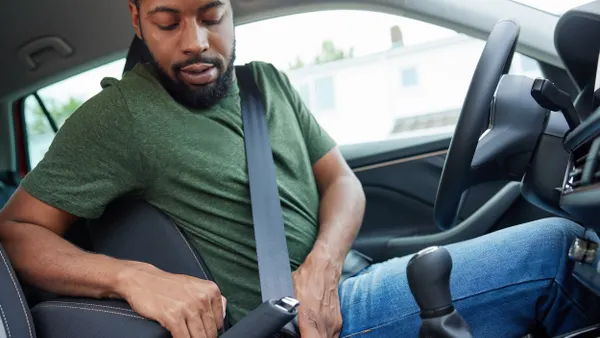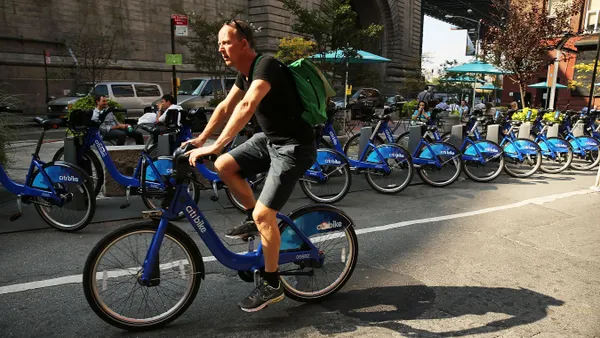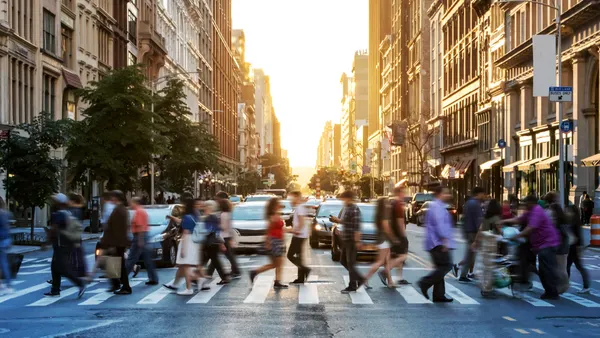Dive Brief:
- Waymo and Uber will bring robotaxis to Atlanta and Austin, Texas, early next year, the companies announced Friday.
- Uber will manage and dispatch the self-driving vehicles in ride-hail service in the two states while Waymo will oversee testing and operation of its autonomous vehicle software, according to a press release. Waymo will also provide roadside assistance and some rider support functions.
- The partnership builds on a strategy the two companies announced last year to expand access to driverless ride-hail vehicles on the Uber platform beginning in Phoenix.
Dive Insight:
Waymo already operates robotaxis in Los Angeles, Phoenix and San Francisco, with some growing pains along the way.
In February, Waymo issued a voluntary recall of its self-driving software following two incidents in Phoenix which resulted in minor vehicle damage but no injuries. Separately, the National Highway Traffic Safety Administration opened an investigation in May after receiving 22 reports regarding Waymo vehicles being involved in collisions and situations where its vehicles appeared to disobey traffic safety control devices.
Uber has also entered partnerships with other autonomous vehicle and technology companies. In August, Uber announced a partnership with General Motors’ Cruise subsidiary to add the robotaxi company’s vehicles to the Uber platform. In 2023, Cruise lost its permit in California to operate robotaxis following an incident in which one of its driverless vehicles struck and then dragged a pedestrian trapped under the car. Cruise has since resumed mapping operations in Phoenix and begun supervised rides with safety drivers in Phoenix and Dallas.
Uber CEO Dara Khosrowshahi said on the company’s Aug. 6 earnings call that he envisions a future mix of human drivers and self-driving cars. “We think kind of a hybrid network that consists of both humans and robots can handle the peaks and valleys much more effectively than a pure-play network,” he said.
Uber said Aug. 29 it will invest in autonomous driving startup Wayve and collaborate with the AI company to deploy self-driving vehicles on the Uber network in many global markets.



